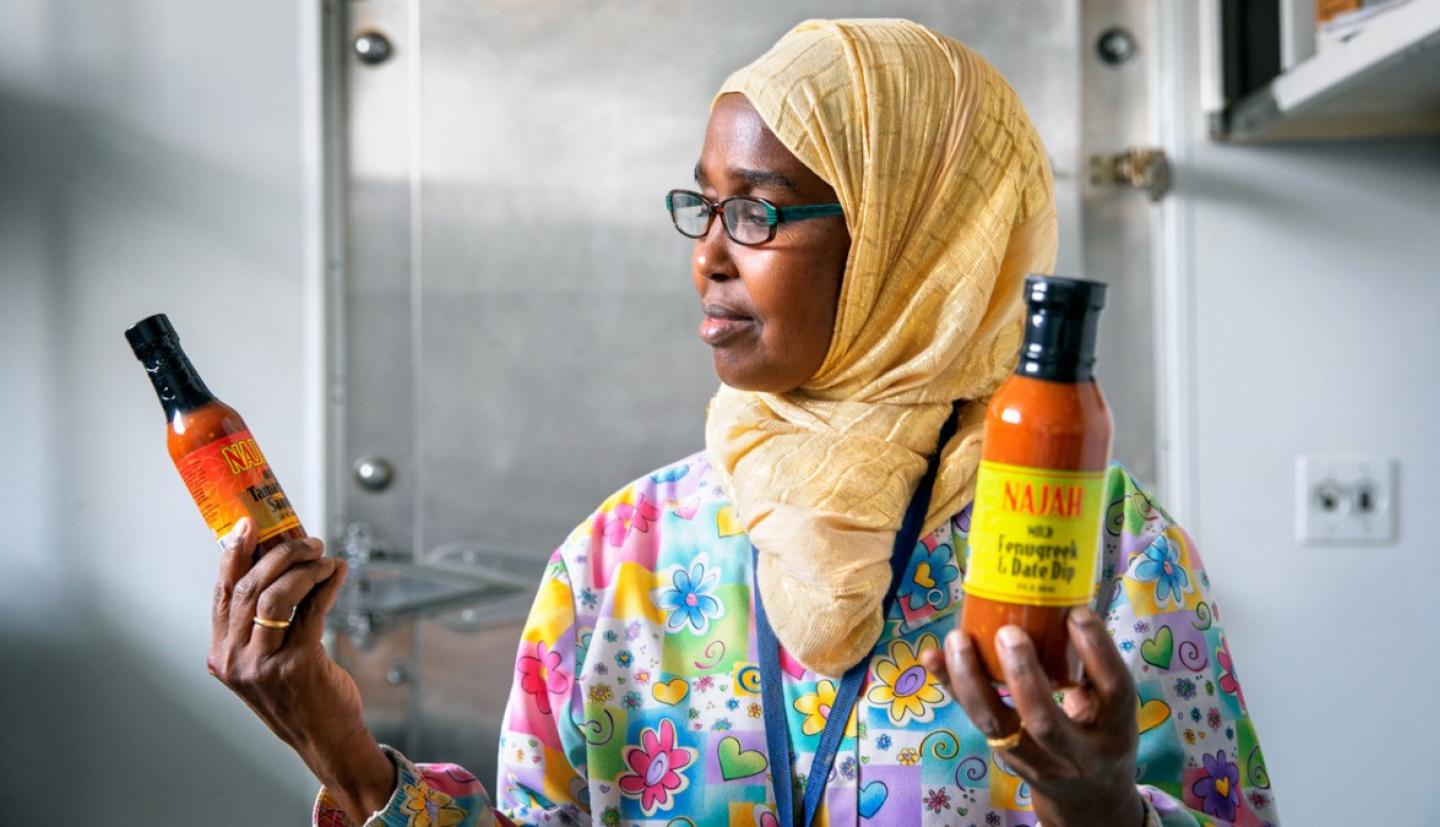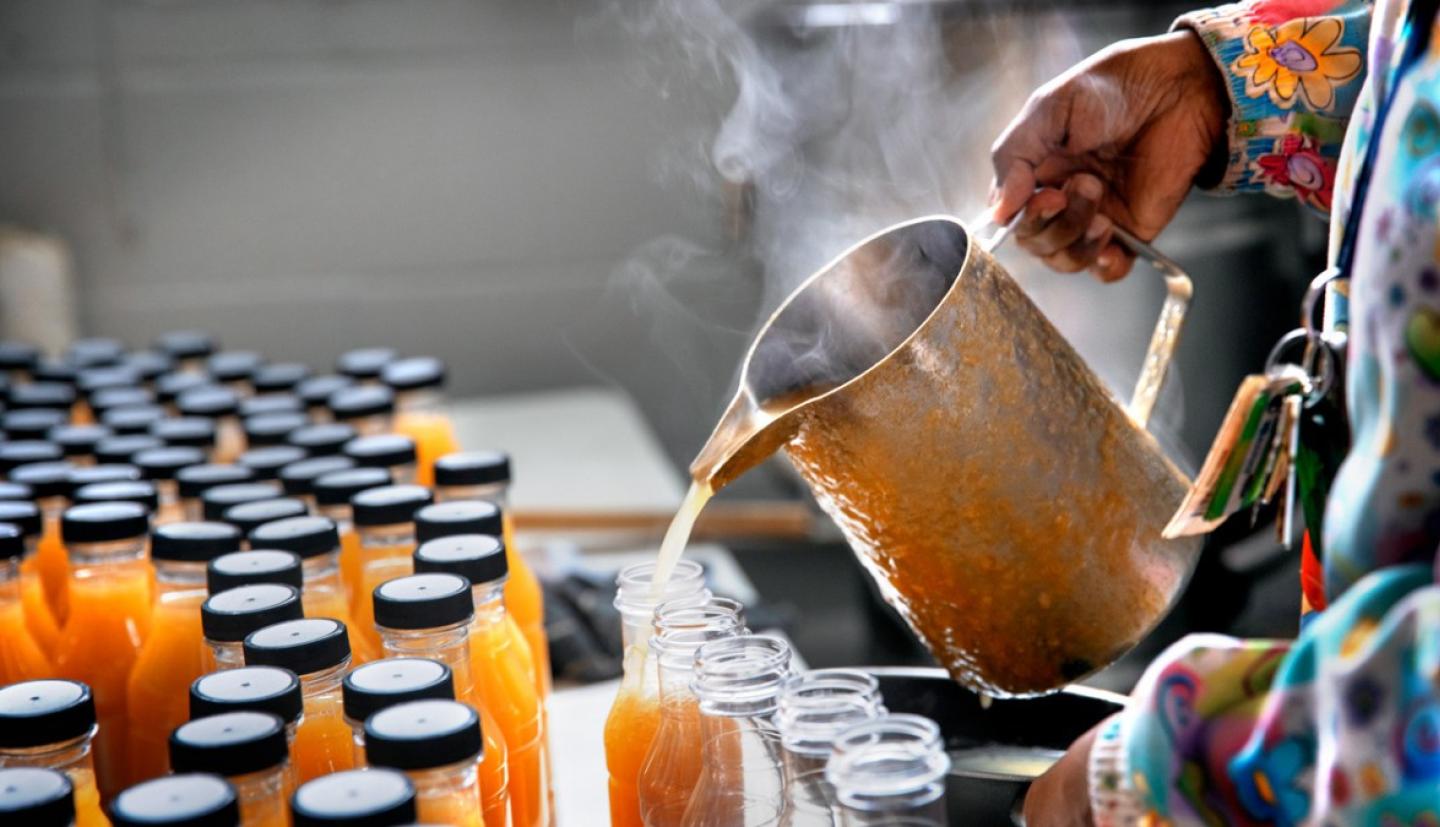The Geneva, New York-based center informs and advises small food manufacturers about food safety standards and regulations and provides tools, techniques and solutions for meeting those codes.
The center – the only one of its kind in New York state to offer affordable help navigating the complicated world of food safety regulations – is an invaluable resource to small business owners, especially ones like Ali, who arrived in the U.S. as a refugee in the mid-1990s.
“With any kind of food business, people are working and creating their own jobs, creating their own opportunities, and there are roadblocks. Regulation in food safety is certainly something that they need to navigate to bring a product to market,” said Bruno Xavier, Ph.D '08, a food microbiologist and extension associate at the Cornell Food Venture Center (CFVC). The center’s staff, including Xavier and center director Olga Padilla-Zakour Ph.D. ‘91, professor and chair in the Department of Food Science, evaluate product samples and can recommend, for example, appropriate processing temperature or acidity adjustments, optimal equipment and packaging and how to create a standard overall process, called a scheduled process.
Any small food business owner in NYS can receive a scheduled process for about $100, a deeply discounted rate due to the CFVC’s focus on small businesses and their issues and the sheer volume of work the center processes. Also, New York state-based food businesses get discounts, made possible in part by current and previous state grants awarded to the program.







